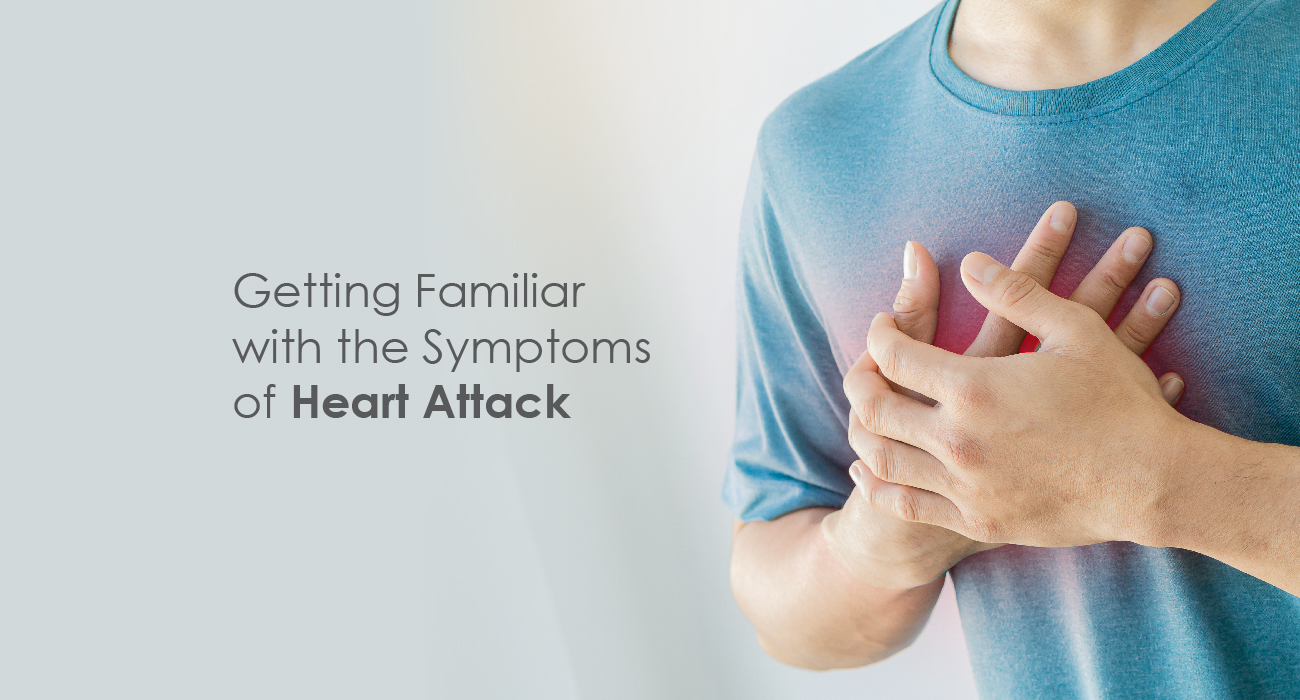06/17/2022
If you frequently have a dull aching or a burning sensation in your chest and have neglected it for an extended period of time, you should see your doctor immediately. The pain may become severe, raising the possibility of a heart attack. We've talked about the symptoms of a heart attack as well as the risk factors linked to the same. Our experts, practicing in the best heart hospital in Jaipur, have helped us. So that you or any of your loved ones will be aware if medical assistance is required.
Your doctor may use multiple pieces of information to determine that you are having a heart attack. The symptoms, on the other hand, can reveal a lot more about your cardiac disease. Before seeking medical attention, you should be aware of the following symptoms.
- Chest Discomfort or Pain: This may feel like a tight ache, pressure, fullness, or squeezing in your chest and may last for several minutes. This condition may come and go.
- Upper-Body Ache: The discomfort or pain may move to your shoulders, arms, back, neck, teeth, or jaw.
- Stomach Ache: The ache may radiate down into your abdomen and mimic heartburn.
- Breathing Problems: You may pant for air or try to take deep breaths. This often occurs before you experience chest discomfort, or you may not experience any chest discomfort at all.
- Anxiety: For no apparent reason, you may experience a sense of impending doom or a panic attack.
- Lightheadedness: In addition to chest pain, you may experience dizziness or the sensation of passing out.
- Sweating: You may find yourself breaking out in a cold, clammy sweat.
- Heart Palpitations: You may get the impression that your heart is skipping beats, or you may simply be aware that your heart is beating.
When is it more likely that the Pain is a Heart Attack?
As suggested by the Cardiac Specialist in Jaipur, the nature of your discomfort can reveal a lot about your heart health. The pain can be more likely to be a heart attack if:
- The aching sensation is accompanied by chest tightness or a burning sensation.
- If you experience pain or pressure during or after physical activity,
- Pain that is both diffuse and continuous in the middle of the chest.
- The pain can occur even when you are sleeping.
When should you get concerned about Chest Pain?
Unlike an aching knee or a tight lower back, you can't put off chest pain until tomorrow. It is also not a condition that can be identified at home. If you have pain or discomfort in your chest, upper back, left arm, or jaw, or if you suddenly faint or develop cold sweat, nausea, or vomiting, don't delay in getting treatment; get medical attention immediately.
What are the risk factors associated with a Heart Attack?
A variety of medical conditions, as well as your lifestyle, age, and family history, can all increase your risk of heart disease and heart attack. These are referred to as "risk factors." Approximately half of the world's population has one or more of the following major risk factors for heart disease: high blood pressure, high cholesterol, or smoking.
Some risk factors, such as family history or young age, are uncontrollable. You may, however, lower your risk by changing your lifestyle and the factors over which you have control.
The majority of us are unaware of the warning signs and, as a result, disregard them. It is vital that you see a cardiologist on a regular basis. You can consult with the best Cardiologists in Jaipur, who provide high-quality comprehensive cardiac care to keep your heart healthy.

